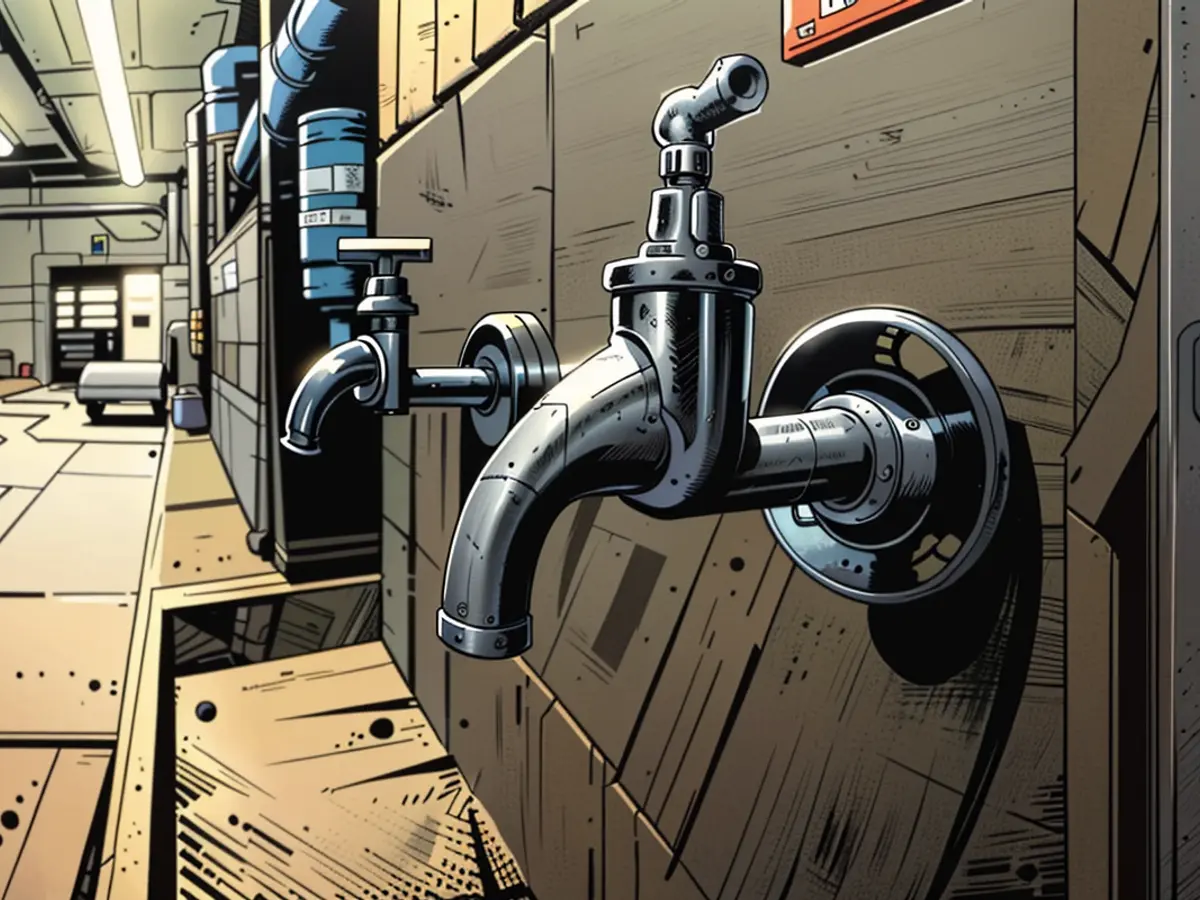- The situation of groundwater in Rhineland-Palatinate
Turning the tap on for clean drinking water is something most people in Germany are accustomed to. But what if there's not enough drinking water available? The Rhineland-Palatinate Ministry of the Environment reports that, due to advancing climate change, the state has seen around a quarter less groundwater recharge in recent years. Moreover, 97% of the drinking water in the region comes from groundwater.
"Since 2003, the rate of groundwater recharge has significantly decreased," says hydrogeologist Hans Jürgen Hahn from the Rhineland-Palatinate Technical University Kaiserslautern-Landau. "While the wet months have brought some recovery, this does not mean we've returned to the original conditions."
This recovery is also observed by the State Environmental Agency. "We haven't seen such high groundwater levels at many measurement points in the past five to six years," explains Stephan Sauer. "But one winter half-year isn't enough. The next few years will decide whether the groundwater reservoir will refill." The general trend, however, is downward.
Most groundwater is used for drinking water, as shown by 2018 figures. Public water suppliers extract about 267 million cubic meters, including firefighting water and personal needs, followed by industry with large consumers at around 72 million cubic meters. About 35 million cubic meters are taken for agriculture.
"Groundwater is formed when precipitation water seeps into the ground," explains Hahn. "How much of it seeps depends on how the rain falls - whether it's even or if we're dealing with heavy rain."
The type of soil also plays a role - if it's loose and uncompressed, water seeps in better. If it's compressed, water flows away and hardly reaches the groundwater.
The season is also crucial. "The rate of groundwater recharge is much lower in summer than in winter," says Hahn. "Ideally, precipitation should fall as snow. Then it stays, melts slowly, and can seep in better." Anything that rains now in the summer half-year does not contribute to groundwater recharge, says Sauer. "But it's still important for the soil water reservoir and the water supply of vegetation."
How does climate change affect groundwater and drinking water?
Climate change influences groundwater and drinking water in several ways. "While it still rains as much as before, it's not as regular," the ministry writes. There's an increase in heavy rainfall, but the soil can't absorb all that water at once, so it flows off above ground. At the same time, temperatures rise and water evaporates faster.
"The period of the year when groundwater recharge occurs has become about a month shorter compared to the 1960s," says Hahn. This is because groundwater forms best in winter, but in summer, the rain is needed by the vegetation. This period has shifted due to climate change.
According to Stephan Sauer from the State Environmental Agency, the scarcity of groundwater also leads to qualitative problems. "If less water seeps in, the concentration of substances increases, and so does the possible pollution in the groundwater," he says.
"Germany is one of the countries with the highest water loss due to climate change," says Hahn. "We need to prepare for that. This can cause problems not only with drinking water."
According to the Ministry of the Environment, groundwater also feeds lakes, ponds, streams, and rivers. "Less groundwater therefore means a decreasing water level in these bodies of water, with problems for nature, as spawning grounds disappear, for the economy if cooling water for industry is lacking or shipping is restricted due to low water levels, and for tourism if bathing lakes dry up or pools can no longer be filled," it says.
What can be done about this?
In northern Rhineland-Palatinate, six water associations have now joined forces in an initiative. They commit to helping each other out in water shortages. According to the ministry, the initiative plans to connect the supply lines of the providers via so-called joints and use pumping stations to direct the water. If there are shortages in one region, others could step in.
Such combined systems can be a means of combating water scarcity. However, Hahn points out: "If water scarcity occurs somewhere and water is supplied from elsewhere, then the water consumption increases where the water comes from and can cause problems there."
Another point is the water that people use at home. "Private water consumption has increased by a good ten percent in recent years," says Hahn.
In the long term, the main goal is to keep water in the landscape as much as possible, he says. "But actually, we must above all reverse the dewatering of the landscape." This includes, for example, de-sealing in cities, but also the design of streams and brooks.
"The decrease in groundwater recharge due to climate change is a concern, as 97% of the drinking water in the Rhineland-Palatinate region comes from groundwater," highlights the text.
"Given that climate change is causing less regular rainfall and an increase in heavy rainfall, which leads to water running off instead of seeping into the ground, preserving existing water resources and reducing water loss are crucial for maintaining drinking water supplies in the region," adds Hahn.








